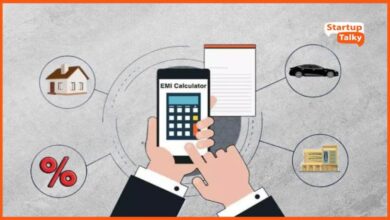The Stock Market: An Emotional Roller Coaster or a Rational Machine? – Kavan Choksi

Introduction
Mention the stock market, and you conjure images of frenzied Wall Street traders, fluctuating tickers, and perhaps, for the more historically inclined, the catastrophic crashes of 1929 or 2008. However, the stock market is not just a collection of indices and tickers; it’s an evolving entity driven by a complex interplay of rational strategies and human emotions. In this article, we’ll dissect the stock market from this dual perspective, examining how emotions and algorithms coexist in this captivating financial universe. Let’s see what pros like Kavan Choksi say.
The Rational vs. The Emotional
Efficient Market Hypothesis
This widely-discussed theory posits that all available information is already reflected in stock prices. Thus, it should be impossible to “beat the market” consistently through expert analysis or insider information. If this theory holds true, then the stock market should be a completely rational machine, devoid of emotional influences.
Animal Spirits
John Maynard Keynes used the term “animal spirits” to describe the emotional and psychological factors that influence investors. Contrary to the Efficient Market Hypothesis, Keynes argued that markets often behave irrationally due to human emotions like greed, fear, and overconfidence.
The Players
Quants and Algorithms
On one end of the spectrum, we have quantitative analysts or “quants” and high-frequency trading algorithms that make decisions based on complex mathematical models. These models analyze numerous variables, from economic indicators to social media sentiment, in nanoseconds.
Retail Investors and Psychology
On the other end are retail investors, who often rely on a mix of research, intuition, and emotion. The surge in popularity of online forums and social media platforms has led to phenomena like meme stocks, where collective enthusiasm or pessimism can dramatically sway stock prices.
Market Anomalies: When Emotion and Logic Clash
Bubbles and Crashes
While algorithms and seasoned traders closely watch for market trends and patterns, they can’t always account for bubbles fueled by investor euphoria or crashes triggered by widespread panic.
The Dividend Puzzle
In a perfectly rational market, investors shouldn’t have a preference between dividends and capital gains, as both are forms of financial returns. However, many investors have a strong preference for dividends, a bias not entirely explained by rational financial theory.
Regulatory and Ethical Considerations
Emotional Manipulation
The emotional aspect of the stock market opens the door for potential manipulation. Whether it’s pump-and-dump schemes or misleading news, the emotional charge around stocks can be exploited.
Algorithmic Fairness
As algorithms take on a more significant role in trading, questions about their fairness and potential biases in these mathematical models are coming to the fore.
The Future: A Symbiotic Relationship?
Emotional AI
Advancements in AI are beginning to incorporate emotional intelligence. Future trading algorithms may analyze human emotions more adeptly, blurring the lines between rational and emotional trading.
Democratization of Investment
Apps and platforms that simplify investment choices are bringing more people into the stock market, adding new emotional dynamics. This democratization can either stabilize markets through diversification or magnify emotional swings.
Conclusion
The stock market is a fascinating tapestry of rationality and emotion, where algorithms and animal spirits are in a constant dance. Understanding this intricate interplay is essential for investors, policymakers, and regulators. As technology continues to advance, the boundary between emotional and rational decision-making is likely to become increasingly porous, creating a stock market ecosystem that is ever more complex and captivating.




